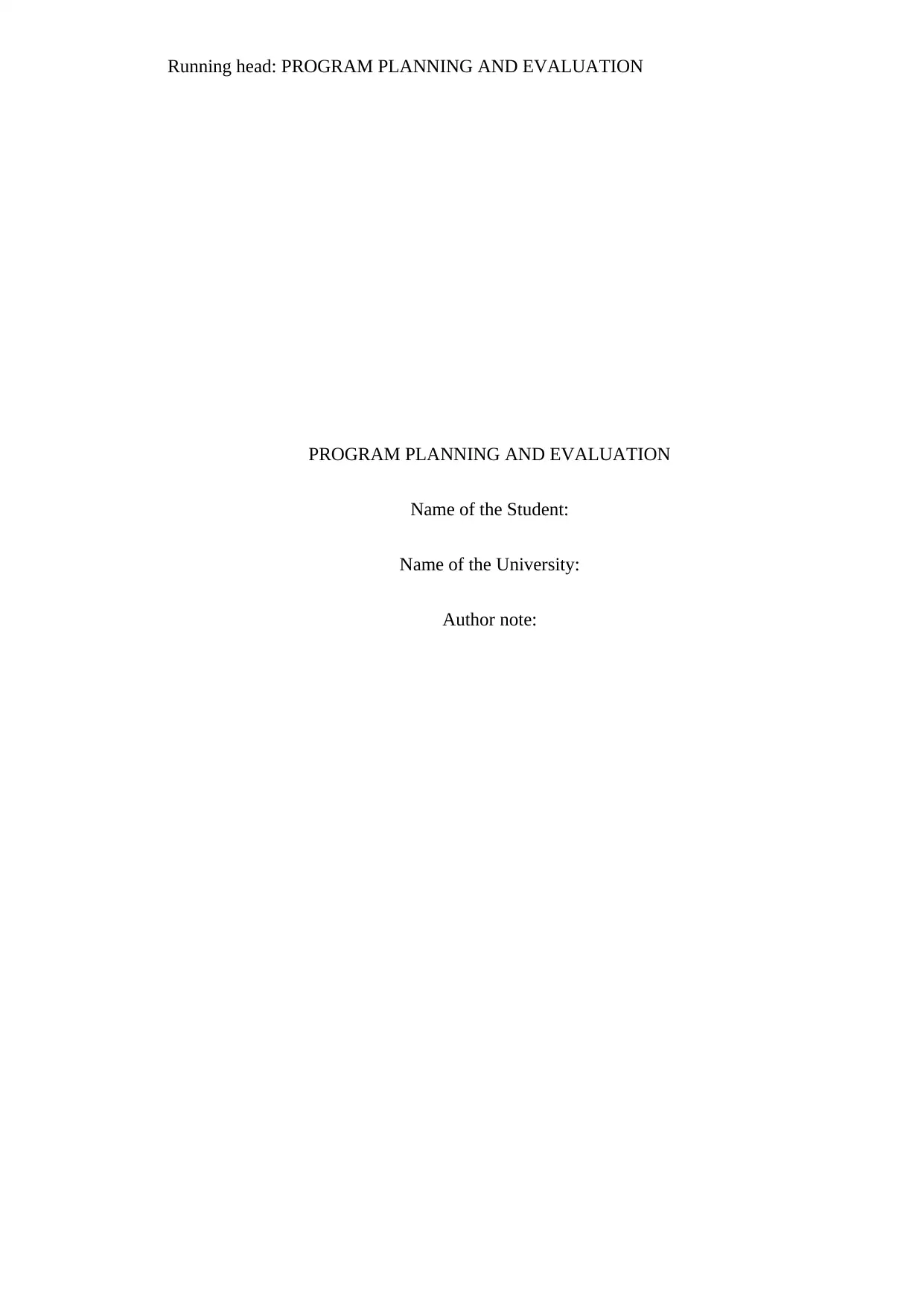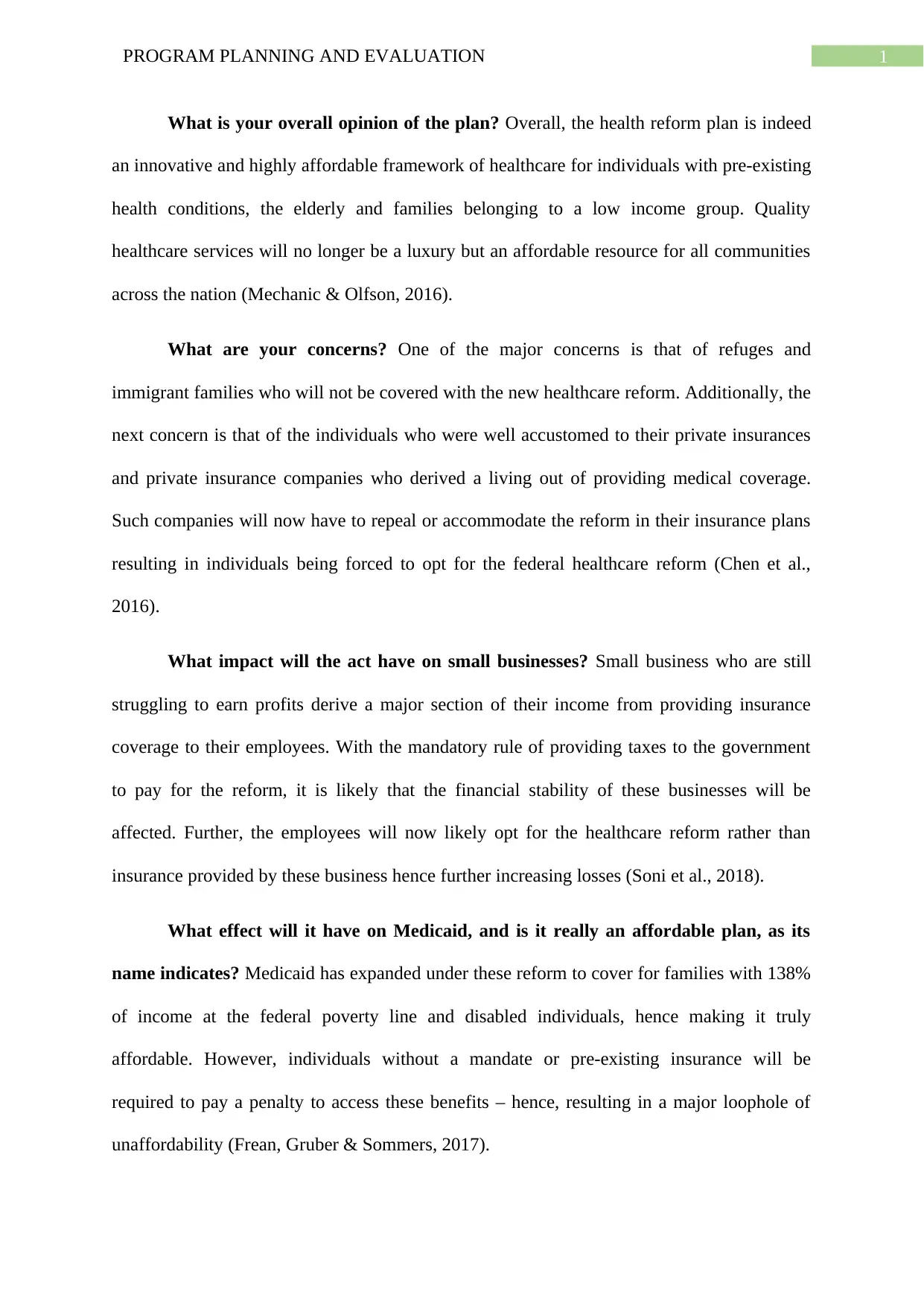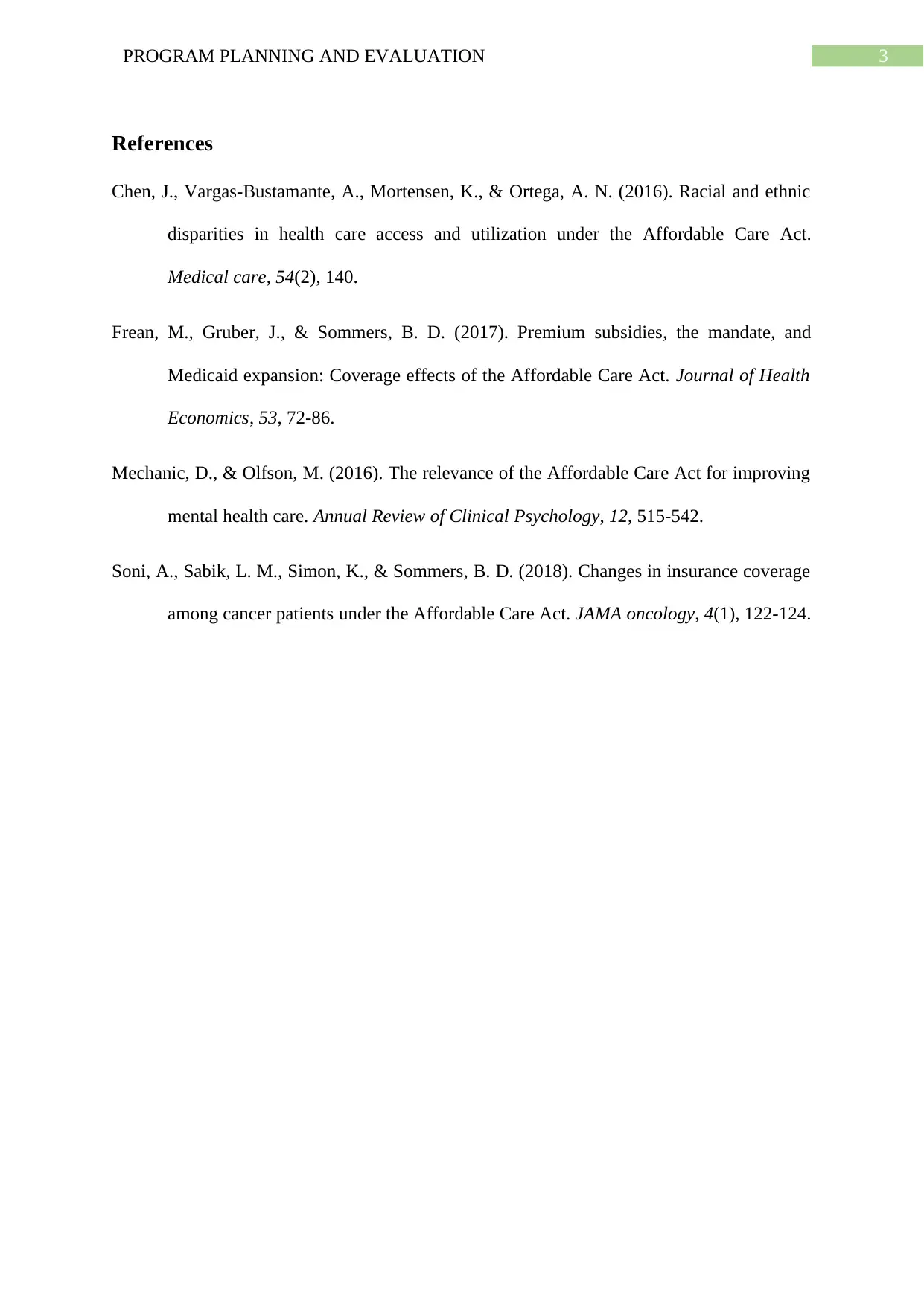Healthcare Reform Analysis: Program Planning and Evaluation Report
VerifiedAdded on 2022/10/02
|4
|557
|14
Report
AI Summary
This report analyzes the impact of healthcare reform, focusing on the Affordable Care Act and its implications. It examines the reform's effects on individuals with pre-existing conditions, the elderly, and low-income families, highlighting the potential for increased access to affordable healthcare. The report identifies concerns regarding refugees and immigrant families, as well as the impact on private insurance companies and small businesses. It also assesses the reform's influence on Medicaid expansion and the affordability of healthcare services, acknowledging the penalty for those without a mandate or pre-existing insurance. The analysis draws on multiple sources and discusses the practical implications of the healthcare plan.
1 out of 4











![[object Object]](/_next/static/media/star-bottom.7253800d.svg)